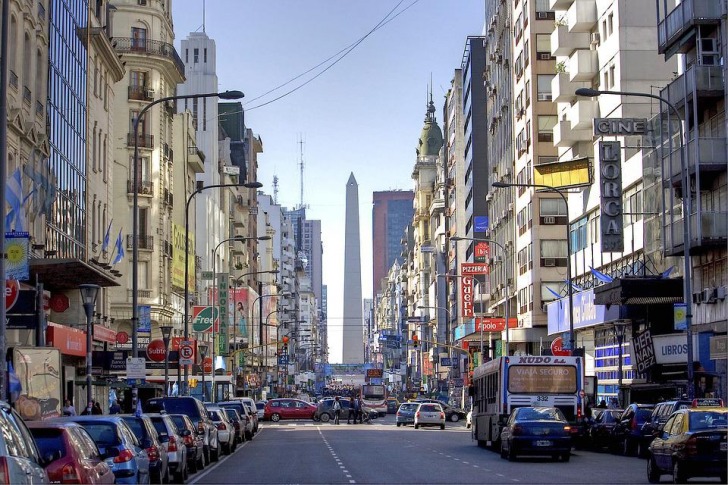
The real estate market in Argentina has witnessed numerous transformations over recent decades, reflecting economic, social, and demographic changes. As the country continues to evolve, understanding how current trends may shape the real estate market in the coming years is crucial. This guide explores emerging trends and provides insight into what we can expect in the Argentine real estate sector over the next five years.
1. Growth in Peri-Urban and Rural Areas
The COVID-19 pandemic and the rise of remote work have shifted many buyers' priorities. With telecommuting becoming a viable option for many, there is an increasing demand for properties in peri-urban and rural areas. Buyers are seeking more space and tranquility outside major urban centers.
- Peri-Urban Areas: Neighborhoods and towns close to major urban centers like Buenos Aires, Córdoba, and Rosario are seeing increased property demand. These locations offer a better quality of life, with more space and access to green areas.
- Rural Areas: Properties in regions such as Patagonia and Northern Argentina are gaining popularity among those looking to escape the hustle and bustle of city life and enjoy a more natural environment.
2. Increased Demand for Sustainable and Eco-Friendly Homes
Interest in sustainability and environmental responsibility is growing worldwide, and Argentina is no exception. Buyers are increasingly interested in properties that incorporate eco-friendly practices and technologies.
- Green Building: An increase in the development of buildings using sustainable materials, eco-friendly construction techniques, and renewable energy systems is expected.
- Energy Efficiency: Properties featuring energy-efficient characteristics, such as solar panels, water recycling systems, and high-quality insulation, will be in higher demand.
3. Digitalization and Technology in Real Estate
Technology is transforming how we buy and sell properties. Digitalization continues to play a crucial role in the Argentine real estate sector.
- Virtual Tours and 3D Walkthroughs: Virtual tours and 3D walkthroughs are making property searches easier, allowing buyers to explore properties from anywhere.
- Online Platforms: Digital platforms for buying, selling, and renting properties are on the rise. Buyers and investors are using online tools to obtain detailed information and complete transactions more efficiently.
4. Urbanization and Development of New Areas
Urbanization remains a key trend in real estate development. Argentine cities are expanding and developing new residential and commercial areas.
- New Urban Projects: Major urbanization and development projects are underway in cities like Buenos Aires and Córdoba, featuring new residential areas, shopping centers, and recreational spaces.
- Revitalization of Neighborhoods: Many cities are focusing on revitalizing older neighborhoods, improving infrastructure, and promoting economic development.
5. Impact of Economic and Financial Policies
Economic and financial policies have a significant impact on the real estate market. Interest rates, inflation, and government policies will play a crucial role in shaping market trends over the coming years.
- Interest Rates: Fluctuations in interest rates can affect mortgage affordability and, consequently, property demand.
- Government Policies: Policies related to foreign investment, tax incentives, and construction regulations will influence the attractiveness of the Argentine real estate market for buyers and investors.
6. Changes in Residential Preferences
Buyers' preferences are evolving as everyday life changes. New needs and desires are shaping the types of properties in demand.
- Multi-Functional Spaces: With the rise of remote work, there is growing demand for spaces that can adapt to multiple functions, such as home offices and entertainment areas.
- Services and Amenities: Buyers are seeking properties that offer additional services and amenities, such as gyms, coworking spaces, and recreational zones.
Conclusion
The Argentine real estate market is continuously evolving, influenced by changes in the economy, technology, and buyer preferences. Over the next five years, trends such as growth in peri-urban areas, demand for sustainable homes, digitalization, urbanization, and economic policies will continue to shape the market. Staying informed about these trends can help you make informed decisions and take advantage of emerging opportunities in the real estate sector.
For those interested in the market, whether as buyers, sellers, or investors, staying updated with trends and understanding their impact is key to successfully navigating the dynamic Argentine real estate landscape.
 Navigating the Argentine Real Estate Market: A Comprehensive Guide for International Buyers
Navigating the Argentine Real Estate Market: A Comprehensive Guide for International Buyers
 The Evolution of Real Estate Trends in Argentina: What to Expect in the Next 5 Years
The Evolution of Real Estate Trends in Argentina: What to Expect in the Next 5 Years